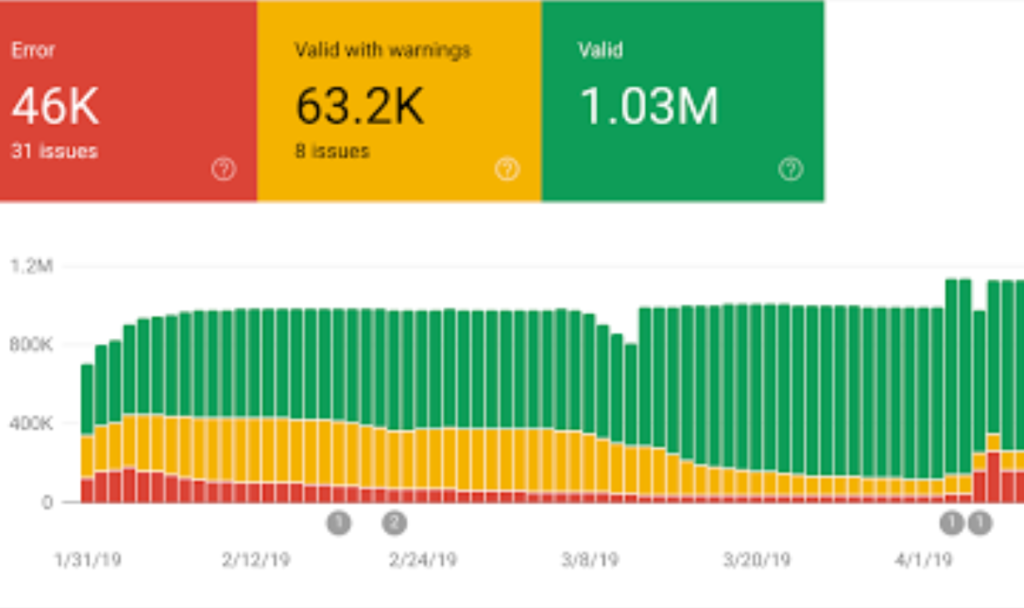In the rapidly evolving world of digital search, Google remains a key player. The company’s continuous updates and innovations often set the pace for the industry. However, a recent announcement has left many webmasters and SEO professionals concerned: Google will not commit to providing AI search traffic data in its Search Console.
The Emergence of AI in Search
Artificial Intelligence (AI) has revolutionized many sectors, and search engines are no exception. Google’s incorporation of AI through technologies like BERT (Bidirectional Encoder Representations from Transformers) and MUM (Multitask Unified Model) has significantly improved the relevance and quality of search results. These advancements help Google understand the context and nuance of user queries, providing more accurate and contextually relevant results.
Search Console: A Crucial Tool for Webmasters
Google Search Console is an indispensable tool for webmasters and SEO professionals. It provides insights into how a website is performing in Google Search, including data on search traffic, indexing status, and potential issues. This data is critical for optimizing websites, improving user experience, and ultimately driving more traffic.
The AI Data Dilemma
Despite the importance of Search Console, Google’s reluctance to commit to including AI search traffic data in this tool has caused a stir. AI-driven search results are becoming more common, but there is currently no way for webmasters to see detailed data about how these AI results are impacting their traffic. This lack of transparency is a significant issue for those who rely on data to make informed decisions about their online presence.
Why the Hesitation?
Google’s hesitation to provide AI search traffic data could be attributed to several factors. First, the complexity of AI algorithms makes it challenging to isolate the impact of AI on search traffic. Unlike traditional search algorithms, which are more straightforward in their operation, AI systems involve intricate layers of learning and adaptation that are difficult to quantify and report on.
Second, there might be concerns about the proprietary nature of Google’s AI technology. Providing detailed insights into how AI affects search traffic could potentially reveal too much about how these sophisticated algorithms work, something Google might want to keep under wraps to maintain a competitive edge.
Implications for Webmasters
For webmasters and SEO professionals, the absence of AI search traffic data in Search Console presents several challenges. Without this data, it is difficult to understand the full impact of AI on search performance. This lack of visibility can hinder efforts to optimize websites for better search engine ranking and user engagement.
Additionally, the inability to track AI-driven search traffic means that webmasters cannot fully gauge the success of their SEO strategies. They rely on data to adjust their tactics and improve their content, but without insights into how AI is influencing search results, their efforts are somewhat hampered.
The Industry’s Response
The SEO community has voiced its concerns about Google’s decision. Many professionals argue that transparency is crucial in the relationship between search engines and webmasters. By not providing AI search traffic data, Google is essentially asking webmasters to operate in the dark regarding a significant portion of their traffic.
Some industry experts suggest that Google could at least provide aggregate data or trends related to AI search traffic. This would give webmasters some level of insight without revealing too much about the proprietary algorithms.
Moving Forward
As AI continues to evolve and become a more integral part of search, the demand for transparency and data will only increase. Google may eventually find it necessary to provide more insights into AI-driven search traffic to maintain the trust and cooperation of the webmaster community.
For now, webmasters and SEO professionals will need to adapt to the current situation. This might involve focusing on other available data, experimenting with different SEO strategies, and staying informed about Google’s updates and announcements.
Conclusion
Google’s decision not to commit to providing AI search traffic data in Search Console is a significant development in the world of SEO. While it highlights the complexities and competitive nature of AI technology, it also underscores the challenges faced by webmasters and SEO professionals who rely on data to optimize their online presence. As the industry moves forward, the call for greater transparency and collaboration between search engines and webmasters will likely continue to grow.



